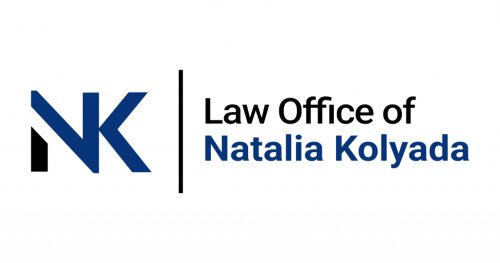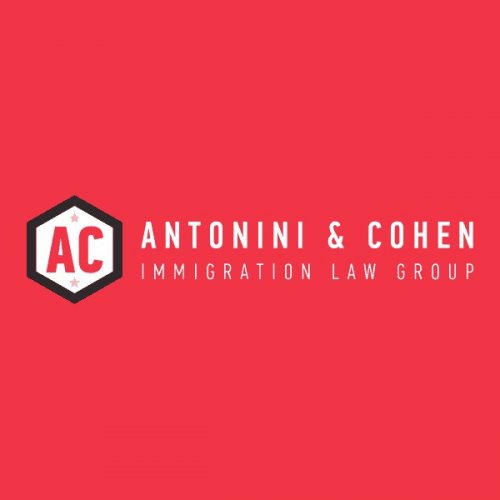Best Work Permit Lawyers in Georgia
Share your needs with us, get contacted by law firms.
Free. Takes 2 min.
Or refine your search by selecting a city:
List of the best lawyers in Georgia, United States
About Work Permit Law in Georgia, United States
A work permit is an official document that authorizes certain individuals, typically minors or non-citizen residents, to work legally within the state of Georgia, United States. Work permits are most commonly associated with minors under the age of 18 who wish to secure part-time or seasonal employment. Federal and state laws require that employers obtain work permits for minors, ensuring that working conditions are safe and do not interfere with education. In addition, foreign nationals needing authorization to work must obtain proper documentation depending on their immigration status.
Why You May Need a Lawyer
Navigating work permit requirements in Georgia can be complex. You may require legal help if you fall into one of the following categories:
- You are under 18 and unsure about your rights or the duties of your employer in obtaining a work permit.
- You are a parent or guardian trying to clarify child labor rules for your minor child seeking employment.
- You are a foreign national seeking employment authorization or dealing with visa or immigration-related issues.
- Your application for a work permit has been denied or delayed, and you need help understanding the next steps.
- You suspect your rights are being violated, for example, through unsafe working conditions, illegal work hours, or underpayment.
- You are an employer unsure about your obligations regarding work permits for minors or non-citizen employees.
Local Laws Overview
Georgia follows both federal and state regulations regarding work permits, especially for employing minors. The Georgia Department of Labor administers work permit rules and ensures employers comply with labor laws. Key aspects include:
- Minors aged 14 and 15 must obtain an Employment Certificate (work permit) before starting a job, with limited working hours and types of allowed work.
- Minors aged 16 and 17 do not require work permits, but restrictions on the type of work and working hours still apply under federal law.
- Employers must keep a copy of the minor’s work permit or certificate on file for inspection.
- There are federal and state restrictions on the number of hours and times of day minors can work, especially while school is in session.
- Foreign nationals typically require employment authorization in the form of a visa or Employment Authorization Document (EAD) depending on their immigration status.
- Penalties for non-compliance can include fines and restrictions on future hiring.
Frequently Asked Questions
Who needs a work permit in Georgia?
In Georgia, minors aged 14 and 15 must obtain a work permit to be lawfully employed. Certain foreign nationals also require employment authorization to work.
How do minors obtain a work permit in Georgia?
Minors, typically through their school or local board of education, complete a work permit application. The employer must complete a section of the application before being processed and issued by the school or Department of Labor.
What jobs are prohibited for minors in Georgia?
Minors are prohibited from working in hazardous occupations such as operating heavy machinery, mining, and roofing. Additional restrictions apply depending on the age group.
What are the working hour restrictions for minors?
Minors aged 14 and 15 can work limited hours - no more than four hours on school days, no more than eight hours on non-school days, and no more than 40 hours during non-school weeks. There are also restrictions on the earliest and latest hours they can work.
Do 16 and 17 year olds need a work permit in Georgia?
No, 16 and 17 year olds in Georgia do not need work permits, but employers must still consider federal regulations regarding hazardous jobs and working hours.
How can I check the status of my work permit application?
You can check the status by contacting the school that issued the permit or the Georgia Department of Labor if you applied directly through government channels.
What if my work permit application is denied?
If an application is denied, you should receive a written explanation. You may correct any errors and reapply. If you believe the denial was in error or discriminatory, contact a legal professional.
Are work permits valid across the entire state?
Yes, Georgia-issued work permits are valid statewide, but a new permit is required each time a minor changes employers.
What if I am a foreign national seeking work authorization?
Foreign nationals must generally obtain federal employment authorization through USCIS, such as an Employment Authorization Document (EAD) or an appropriate visa that includes work privileges.
What are an employer’s responsibilities regarding work permits?
Employers must ensure all minors under 16 have a valid work permit on file before work begins and adhere to all state and federal labor rules regarding minors and unauthorized employment.
Additional Resources
If you need more information or assistance regarding work permits in Georgia, you can contact or consult the following resources:
- Georgia Department of Labor - Child Labor Section
- United States Department of Labor - Wage and Hour Division
- Your local Board of Education or school guidance office
- Legal aid organizations with youth employment or immigration law services
- The United States Citizenship and Immigration Services (USCIS) for federal employment authorization questions
Next Steps
If you believe you need legal assistance regarding a work permit in Georgia, here are recommended steps:
- Gather documentation, including any relevant forms, denial letters, and correspondence related to your work permit request.
- Contact your school guidance office or local Department of Labor office for procedural help.
- If your situation involves complex issues like denial, discrimination, or immigration status, consult a qualified attorney specializing in employment or immigration law.
- Consider reaching out to local legal aid services if you require low-cost or free legal advice.
- Act promptly, especially if you are facing deadlines or urgent employment needs, to ensure compliance and protect your rights.
Lawzana helps you find the best lawyers and law firms in Georgia through a curated and pre-screened list of qualified legal professionals. Our platform offers rankings and detailed profiles of attorneys and law firms, allowing you to compare based on practice areas, including Work Permit, experience, and client feedback.
Each profile includes a description of the firm's areas of practice, client reviews, team members and partners, year of establishment, spoken languages, office locations, contact information, social media presence, and any published articles or resources. Most firms on our platform speak English and are experienced in both local and international legal matters.
Get a quote from top-rated law firms in Georgia, United States — quickly, securely, and without unnecessary hassle.
Disclaimer:
The information provided on this page is for general informational purposes only and does not constitute legal advice. While we strive to ensure the accuracy and relevance of the content, legal information may change over time, and interpretations of the law can vary. You should always consult with a qualified legal professional for advice specific to your situation.
We disclaim all liability for actions taken or not taken based on the content of this page. If you believe any information is incorrect or outdated, please contact us, and we will review and update it where appropriate.
Browse work permit law firms by city in Georgia
Refine your search by selecting a city.
















